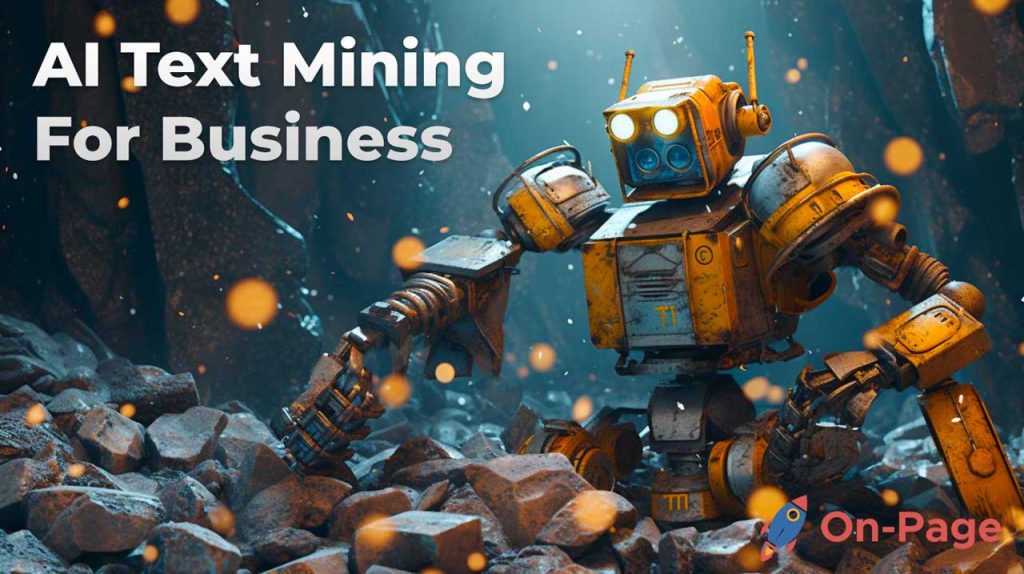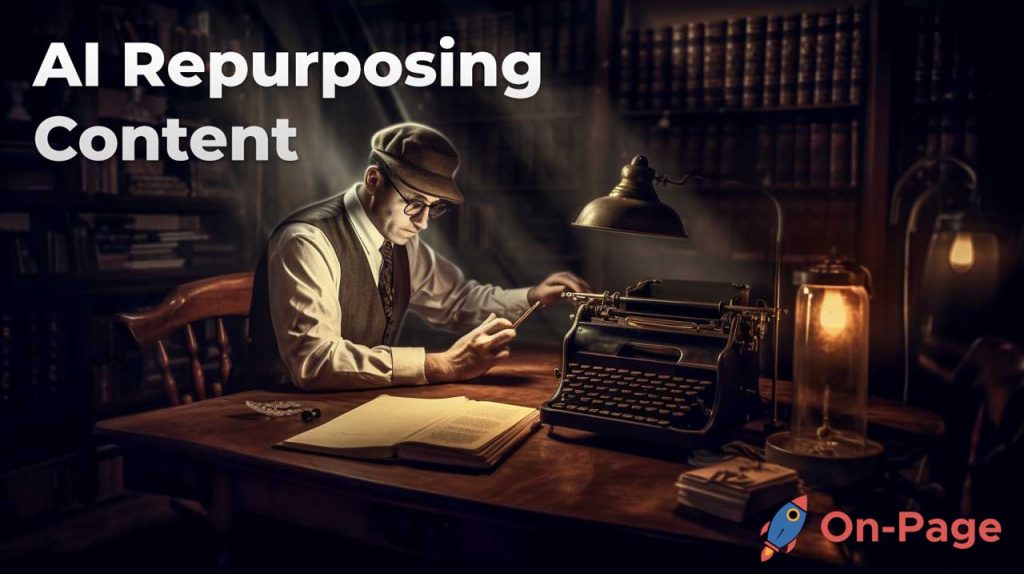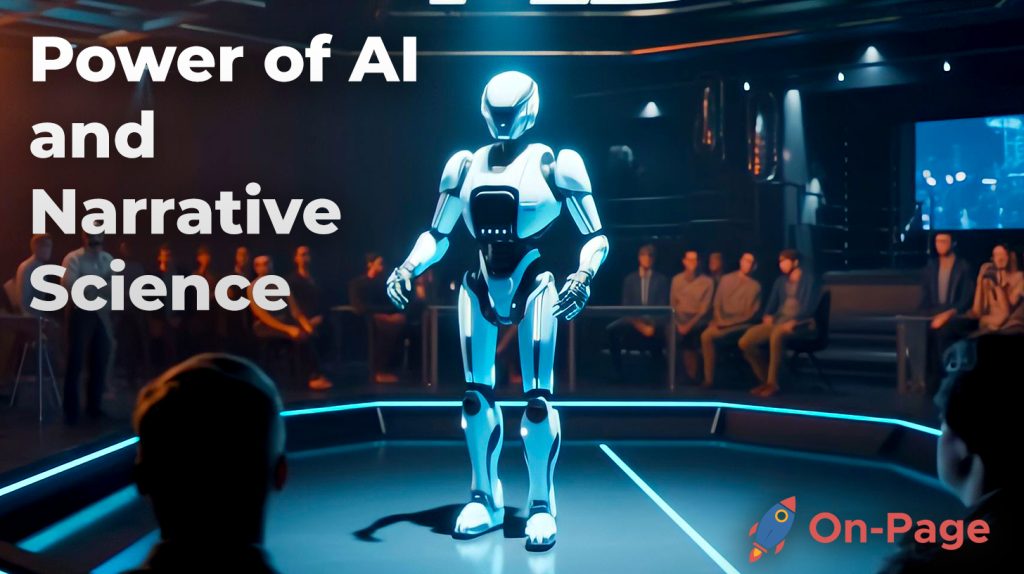Artificial Intelligence has revolutionized the realm of content writing, crafting high-quality pieces with impeccable ease. Utilizing machine-learning algorithms, these revolutionary tools—like On-Page.ai’s Stealth Writer and others including OpenAI’s GPT-3, Writesonic, and ShortlyAI—create flawless articles, blog posts, or marketing copy at a fraction of traditional time and effort.
Yet, beyond sheer convenience, utilizing AI for content creation opens a world of untapped potential – it identifies niche-related trending topics, optimizes SEO usage, and engages audiences with tailored expressions as if understanding human emotions. Let’s begin by exploring some top-notch AI writing instruments in-depth.
AI-generated content plays a crucial role in SEO optimization by enabling businesses to create high-quality, relevant, and engaging articles at scale. With On-Page.ai’s Stealth Writer tool, AI can seamlessly generate SEO-optimized content based on specific topics or keywords, enhancing website rankings and visibility on search engines.
Our Top AI Writing Software Picks
When it comes to AI writing software, a few standout options have gained popularity for their diverse functionalities and user-friendly interfaces. Let’s start with On-Page.ai‘s Stealth Writer. This tool has been making waves in the content creation industry for its robust SEO optimization capabilities and advanced content creation features. It’s designed to assist writers and marketers in producing top-quality articles, blog posts, and marketing copy efficiently and effectively.
One of the key advantages of using On-Page.ai’s Stealth Writer is its intuitive interface that adapts to the user’s specific needs, allowing for seamless content creation tailored to individual brand voices. This level of customization empowers writers and marketers to craft compelling content that resonates with their target audience while optimizing for search engines, ultimately driving better engagement and conversion rates.
For instance, the incorporation of AI-powered text editors, content templates, and advanced analytics within On-Page.ai’s Stealth Writer simplifies the content creation process, providing writers with valuable insights and data-driven recommendations to enhance the overall quality and effectiveness of their work.
In addition to On-Page.ai’s Stealth Writer, other notable AI writing tools have made significant strides in revolutionizing the content creation landscape. OpenAI‘s GPT-3 stands out for its natural language processing capabilities, enabling writers to generate coherent and contextually relevant content across various domains.
Similarly, Writesonic offers creative text generation and a user-friendly interface, catering to users who seek versatility in their content creation process. Additionally, ShortlyAI provides efficient assistance in crafting well-structured articles and marketing copy, contributing to a more streamlined workflow for writers and marketers alike.
The emergence of these advanced AI writing tools has redefined the way content is created, offering a blend of innovation, efficiency, and quality that resonates with modern-day content creators seeking to elevate their output while saving time and effort.
With an understanding of the powerful capabilities these AI-powered writing tools possess, it’s time to explore how you can kickstart your journey into the world of AI content writing.
Starting Your Journey with AI Content Writing
So, you’re ready to embark on a new venture into AI content writing – exhilarating! To get started, it’s important to lay a solid foundation by understanding the fundamental concepts of AI writing.
Natural Language Processing (NLP) forms the basis of most AI writing tools. It involves teaching computers to understand, interpret, and respond to human language in an effective way. Think of it as bridging the gap between what you want to communicate and how machines process language.
Machine learning, on the other hand, is at the core of AI technology. It enables systems to improve their performance on a specific task through learning from data, without being explicitly programmed. This means that AI writing tools can get better and more efficient over time at creating content that aligns with your needs.
Exploring Different AI Writing Tools
Once you grasp these essential concepts, it’s time to explore the vast landscape of AI writing tools. Each platform offers a unique set of features and capabilities, making it crucial for you to experiment with various tools and find the one that best fits your content creation requirements.
AI writing tools vary in their offerings —some focus on generating marketing copy, others specialize in long-form content, while some are adept at streamlining the editing process. For instance, some tools provide advanced SEO optimization features to boost your content’s visibility online, while others excel at creating engaging narratives and storytelling elements.
Experimentation is key: By testing out different platforms, you’ll gain firsthand experience of their functionalities and understand how they align with your specific content creation goals. Think of it as trying on different outfits before finding the perfect match—each tool has its strengths, and it’s essential to find one that complements your writing style and requirements.
Remember, the journey into AI content writing is all about discovery and adaptation. Embrace the learning process, and allow yourself to experiment with a range of tools to hone in on the one that truly resonates with your creative vision.
As you navigate through the labyrinth of AI-powered content creation, a deeper understanding of the mechanisms driving this technological marvel awaits us: The Science Behind AI Content Generation.
The Science Behind AI Content Generation
AI content generation comes to life through a complex dance of powerful algorithms and cutting-edge technology. This technology relies on deep learning models, acting as the brain of the AI system, processing vast amounts of information just like a child learns new words by hearing them in a sentence over and over again—constantly learning and absorbing new linguistic patterns.
In addition, recurrent neural networks (RNNs) aid in contextual understanding, allowing the AI to maintain continuity when generating text, much like when you read a story and need to understand the context from before to comprehend the current paragraph.
Consider transformers like GPT-3, which take AI systems to another level, enabling them to consider much larger chunks of text at once—a bit like being able to read and understand entire chapters instead of just individual sentences. This capability significantly boosts the AI’s ability to produce coherent and contextually accurate text.
Each line of code in these algorithms is designed to work in harmony, turning data analysis into learned linguistic patterns, and ultimately transforming this knowledge into human-like text. This incredible feat blurs the lines between human writing and AI-generated content.
With these advanced technologies working seamlessly together, it’s no wonder that AI-powered writing tools have become so incredibly sophisticated. Now, we’ll delve into how these tools translate these scientific principles into real-world benefits for content creation.
The Upsides of AI Content Writing
It’s no secret that AI-powered writing tools have significantly altered the landscape of content creation, providing writers and businesses with a plethora of benefits. Here are some of the key advantages you can expect when utilizing these powerful writing assistants.
Enhanced Productivity
One of the most notable advantages of AI content writing tools is their ability to expedite the writing process. By leveraging advanced algorithms and natural language processing, these tools empower users to generate high-quality content in a fraction of the time it would take manually. This substantial increase in writing productivity has been reported to save writers up to 20% of their time on content creation tasks—imagine being able to produce more content in less time!
Consistency and Accuracy
Maintaining a consistent tone, style, and grammar across content pieces is essential for establishing a cohesive brand identity and ensuring an impeccable reading experience for your audience. AI writing software excels in this aspect, as it significantly decreases the likelihood of errors while upholding brand voice. By leveraging machine learning capabilities, these tools recognize patterns in your existing content and replicate the same style and tone, contributing to improved accuracy and coherence in your writing. In fact, companies using AI writing tools have reported up to a 25% improvement in content quality—highlighting the substantial impact on maintaining consistency and accuracy.
Content Ideas and Expansion
Struggling with writer’s block or looking for fresh ideas? AI writing tools have got your back. These innovative technologies can aid in idea generation, expand on topics, and provide valuable creative input for content development. By incorporating relevant keywords and related entities into your content, these tools enhance creativity and offer valuable support to writers and content creators. The ability to effortlessly expand on topics not only saves time but also contributes to enriching the depth and breadth of your content, leading to a more engaging reader experience.
Incorporating these compelling benefits into your content creation process demonstrates how AI-powered writing tools are revolutionizing the way we conceptualize, develop, and produce written material. From increased productivity to consistent accuracy and creative input, these sophisticated tools are shaping the future of content creation by empowering writers with unparalleled efficiency and support.
Implementing AI-powered writing tools undoubtedly brings numerous advantages to the table. Now, let’s explore the hurdles associated with integrating these advanced technologies into our content creation journey.
Overcoming Challenges in AI Content Writing
While AI content writing has revolutionized the way we create content, it does come with its own set of challenges. Let’s explore a couple of these challenges and consider how we can address them effectively.
Context and Understanding
One of the key challenges in AI content writing is ensuring that the generated text accurately reflects the intended message and context. Often, this may require human intervention for fine-tuning. AI tools are exceptional at understanding patterns and generating text, but they don’t always grasp the nuances of language like humans do.
Let’s consider a scenario where you’re developing marketing copy for a brand that relies heavily on humor or cultural references. AI might miss the mark on understanding the specific nuances required to convey these elements effectively. In such cases, human input becomes essential to ensure that the content remains true to the brand’s voice and resonates with its audience.
Originality and Uniqueness
Maintaining originality in AI-generated content is vital for standing out in a sea of information on the internet. AI tools must be complemented with plagiarism checks and human review to ensure the content not only stands out but also complies with ethical standards.
AI has access to an immense amount of existing data which it uses to generate content. However, there’s always a risk of unintentional duplicate content being produced. This is where human oversight plays a crucial role in ensuring that the material being generated is fresh, unique, and aligns with the brand’s values and ethics.
At its core, overcoming these challenges means creating a symbiotic relationship between technology and human expertise, leveraging the strengths of both to produce compelling and authentic content that resonates with audiences while adhering to ethical standards.
Moving forward, let’s examine how AI writing can shape audience perception through strategic content creation and delivery.
AI Writing and Impact on Audience Perception
AI-powered writing tools have unquestionably been a game-changer. When it comes to audience perception, some may believe that AI-written content lacks the depth and understanding of nuanced topics that can only be provided by human writers. However, the reality is different. In fact, when AI-generated content is optimized and reviewed by human writers, it has been shown to positively impact audience perception and engagement.
Optimized AI-written content can deliver insightful, engaging, and accurately articulated information that can enhance the overall content experience for readers. Imagine having a tool that helps you refine your ideas and language to appeal to a wider audience—a tool that assists in catching common writing mistakes and improving the quality of your content effortlessly.
When AI-generated content incorporates personalized elements and targeted messaging, it can effectively capture the attention of diverse audiences. This ability to tailor content for different demographics, regions, or even individuals adds a level of personalization that was previously challenging for human writers alone.
For instance, consider a travel company using AI-generated content to create personalized vacation packages for individuals based on their preferences and past travel history. This level of customization not only promotes engagement but also fosters a positive brand perception.
Additionally, with the help of AI-powered writing tools, brands can ensure consistency in their messaging across various platforms and establish a strong brand identity. Consistency in style, tone, and messaging helps build trust and familiarity with the audience, which are crucial factors in shaping audience perception.
AI-generated content can also be utilized to simplify complex topics and present them in a more accessible manner. This approach enhances audience understanding and allows them to engage with subjects they may have found daunting or confusing before.
By now, it’s evident that AI-written content has the potential to positively influence how audiences perceive and interact with the information presented to them. But let’s not forget about the implications on the writing process itself—let’s explore how working alongside AI tools impacts writers themselves.
As demonstrated, AI-generated content can significantly enhance audience perception while also simplifying complex topics and ensuring consistency in messaging. Explore the benefits of AI-powered writing tools today and enhance your content creation process with On-Page.ai. Check out On-Page.ai.





